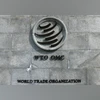India strongly objects to pushing talks on investment facilitation at WTO
India had also raised its serious concerns over issues related to investment facilitation within the ambit of WTO saying that these are bilateral matters and can not be decided at multi-lateral forums
)
India added that investment covers a wide range of assets or enterprises subject to a separate universe of obligations.
Listen to This Article
India has strongly objected to efforts of certain countries to push a proposal on investment facilitation at the WTO, saying the agenda falls outside the mandate of the global trade body and cannot be deliberated in formal meetings.
According to the statement of the Indian delegation in a meeting of the General Council of the World Trade Organisation (WTO), held during December 13-15, negotiation on investment does not belong to the WTO.
"I would like to reiterate that Investment Facilitation for Development (IFD), which supposedly facilitated investment, did not pertain to multilateral trade relations. Investment per se is not trade," the statement said.
It added that investment covers a wide range of assets or enterprises subject to a separate universe of obligations.
"The negative mandate did not allow the Members, desirous of IFD, to pursue it in a multilateral forum upon a consensus," the statement said.
Also Read
It added that certain members began an informal process that did not have any legal sanctity, and now, at the end of their informal process, they are back to consensus seeking on their outcome of an informal process the foundation of which is devoid of consensus.
"What could be more ironic in WTO than this, i.e., violating the treaty-embedded right of members to start consensus-based negotiations on mandated issues, and then at the end of such unrecognized and unlawful process, seeking consensus from those very members whose treaty-embedded right was intentionally vitiated in the first instance," it added.
The General Council is the highest decision-making body of the WTO after the Ministerial Conference (MC), which meets once in two years.
The MC 13 meeting is scheduled from 26 to 29 February 2024 in Abu Dhabi, United Arab Emirates.
Member countries who are pushing for the proposal include Chile and Korea.
Earlier also, India raised its serious concerns over bringing issues related to investment facilitation within the ambit of WTO saying that these are bilateral matters and can not be decided at multi-lateral forums.
The statement said that it is a matter of "serious concern" that the proponents of IFD are trying to force their interests into the rule-based WTO multilateral system in violation of rules.
As far as the investment aspects of trade are concerned, the agreement on TRIMS (Trade-Related Investment Measures) and the GATS (General Agreement on Trade in Services) already deal with trade-related investment aspects in goods and services, respectively.
The TRIMS deals with certain trade-related investment measures that can restrict and distort trade.
The GATS dealt with the supply of services through commercial presence in the territory of any other member, which was related to trade in services and not purely investment.
India added that if some countries want to negotiate the subject, they should do it outside the formal structure of the WTO.
It said that the document placed by those countries is an outcome of an "illegal" process nurtured in a rule-based multilateral system, and "therefore, we would not like it to be placed before the ministers".
Trade ministers of the 164 countries would gather in Abu Dhabi for MC 13.
"Negotiation on investment does not belong to WTO. India's concern emanates from the fact that proponents of IFD, a joint statement initiative (JSI) process, should not be attempting to bring a non-mandated, non-multilateral issue to the formal process in the WTO in violation of the WTO framework and fundamental rule of consensus-based decision-making for starting a negotiation," the statement said.
There has not been any Ministerial mandate for starting negotiations on investment-related matters, it added.
(Only the headline and picture of this report may have been reworked by the Business Standard staff; the rest of the content is auto-generated from a syndicated feed.)
More From This Section
Don't miss the most important news and views of the day. Get them on our Telegram channel
First Published: Dec 22 2023 | 8:35 PM IST
